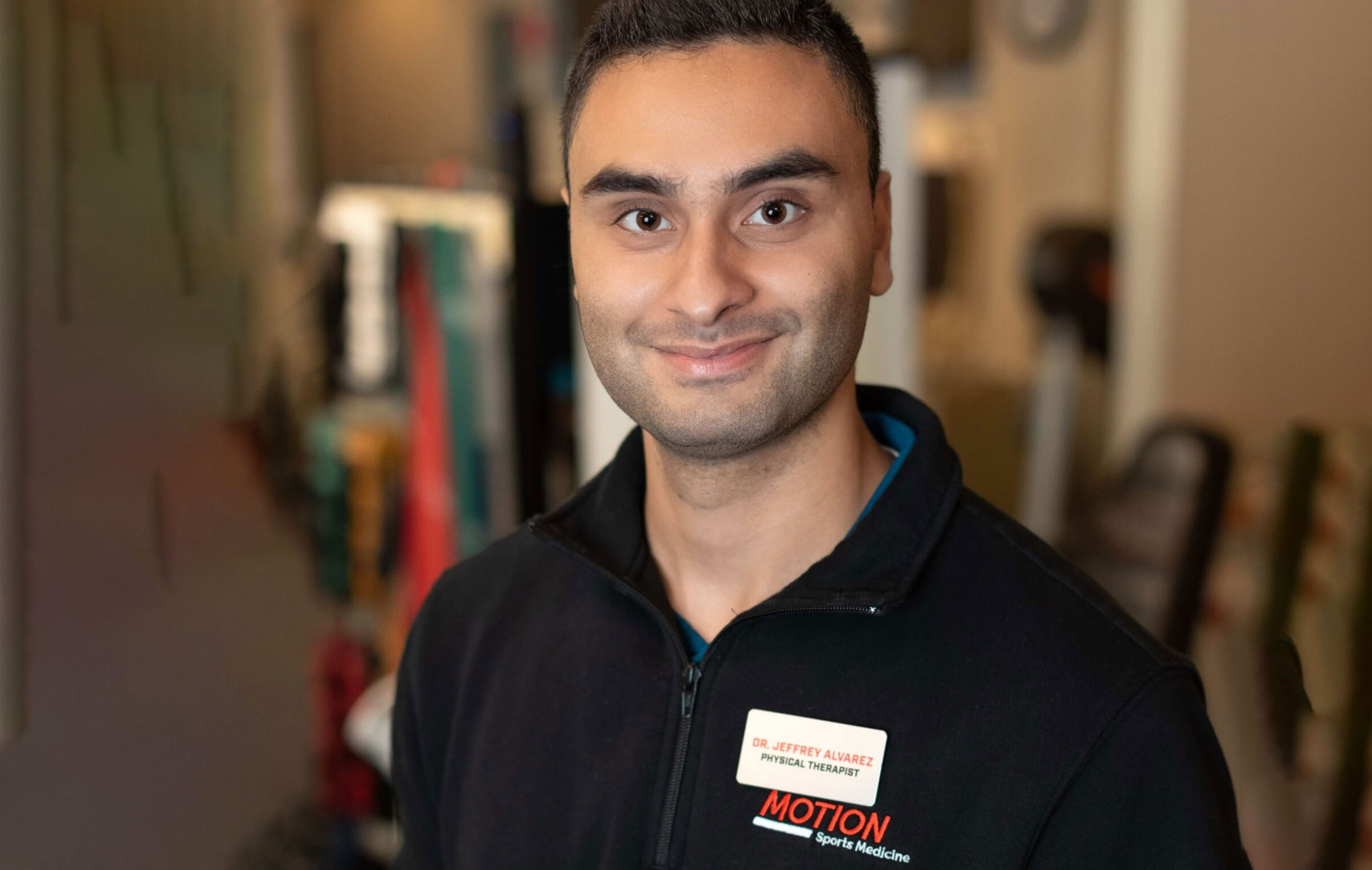In the realm of healthcare, the profession of physical therapy often operates behind the scenes, yet its impact on individuals’ lives can be nothing short of transformative. In this insightful interview, we sit down with Jeffrey Alvarez, Jr., a dedicated MOTION physical therapist in our Carmel location, to delve into his journey into the world of physical therapy and the profound experiences that shaped his career. From a young athlete grappling with an injury to a compassionate mentor who understands the importance of empathy, Jeffrey’s story sheds light on the vital role physical therapists play in healing and promoting overall well-being. Join us as we explore the personalized approach to treatment, the power of success stories, and the latest advancements in this dynamic field. Discover why raising awareness about physical therapy is more critical than ever in a society often entangled in quick-fix solutions, and learn valuable advice for those considering a career path in this compassionate and impactful profession.
Q: Can you tell us about your journey to becoming a physical therapist and what inspired you to choose this profession?
Jeffrey: When I was 13 years old, my passion was playing baseball. During one game, while running for a pop-fly, I felt something that didn’t feel right. Turns out, I pulled my hamstring which led me to physical therapy. I was discouraged by my injury and worried about missing the playoffs. My PT took the time to listen to me and work with me on my goals of rejoining the team. After working together and sticking to our treatment plan, I made it back in time for playoffs. The experience left an impression that followed me through high school. At that time, I was doing martial arts and mentoring younger students on the principles and their moves. That experience made me realize that I loved coaching, teaching and instructing. When it came time for college, I began pursuing the physical therapy path at Sacred Heart University. I had the opportunity to volunteer alongside physical therapists and was able to witness first-hand their impact on patients. Seeing them succeed and meet their goals was very powerful.
Q: What are the most common conditions or injuries you treat as a physical therapist?
Jeffrey: Most commonly, I treat patients with a variety of orthopedic injuries. Some examples include ankle sprains, osteoarthritis, post-op ACL surgery, rotator cuff injuries, tendonitis, and low back pain. I have also had the opportunity to work with patients who need help with gait and balance as a result of Parkinson’s and other neurological conditions.. I have really grown to love working with this patient population. You have the opportunity to get creative with therapy while working with sensory systems. In addition, the MOTION Carmel location also treats hand and upper extremities, occupational therapy and work injury rehabilitation.
Q: How do you personalize treatment plans for your patients based on their specific needs and goals?
Jeffrey: It is really critical to get a detailed history from the patient at their initial visit in addition to what is bringing them to physical therapy beyond the injury. What do they love to do? What does their job entail? Subsequently, I conduct an evaluation to identify any constraints in their functional abilities, assessing whether the pain or injury hinders their capacity to perform everyday activities within a typical range of motion. I then create a treatment plan that takes all of this information into account. For example, if they are working with me on a shoulder injury and have a job that requires overhead lifting, I will work with them on overhead exercises to make sure we are rehabilitating them properly. It is important to treat the person, not just the injury.
Q: Could you share a memorable success story of a patient you’ve worked with?
Jeffrey: I once had a patient and his mom come to see me for post-concussion syndrome. I could immediately tell that the concussions had impacted the patient’s mood. At first, he didn’t want to work with me or be at physical therapy. I could also see the effect the injury had on his mother. She had seen so many practitioners who had written her child off as bipolar. She shared with me that her son’s ability to lead and concentrate had suffered. It was affecting his schoolwork. I worked with my patient and his mom by first explaining how concussions can present to help them both feel confident in the treatment plan. Quickly, I saw he was improving. His mood was better, he was motivated during our work. We focused a lot of time toward balance and coordination.
Q: What role does physical therapy play in promoting overall health and wellness?
Jeffrey: Many people know they should exercise for the physical benefits but they don’t realize it also has an impact on mood and well-being – the psycho-social effects. And unless you have worked with a PT before, you might not know that the treatment is hyper personalized. Also, unlike most practitioner/patient relationships, physical therapy dedicates more one-on-one time over an extended period to treat a patient. The treatment is collaborative and is built on a relationship of trust.
Q: Why do you think it’s important to raise awareness about the field of physical therapy?
Jeffrey: We are part of a society that prioritizes quick fixes. However, in chasing that, we have built a reliance on medication rather than treating the root cause. Physical therapy focuses on building strength and can also be a great tool in injury prevention.
Q: Can you provide some insights into the latest advancements or techniques in physical therapy that patients might find interesting?
Jeffrey: Physical therapy is a very hands-on practice and there are now many tools to assist us as we treat patients for different conditions such as thera-guns, cupping, and Graston technique instruments. These tools assist with targeting specific muscle groups and improving circulation.
Q: What advice would you give to someone considering physical therapy as a career path?
Jeffrey: My mentor told me that while clinical work is important, it can be taught in school and built on over the course of your career. What can’t be taught is empathy and compassion. You need to be able to relate to your patients and understand what they are going through. This helps build trust and makes them feel seen and heard.




